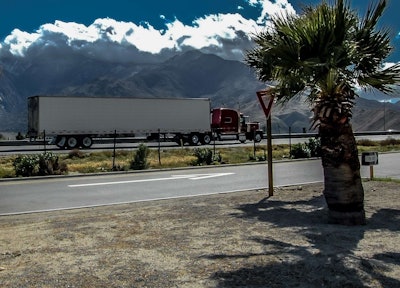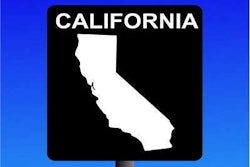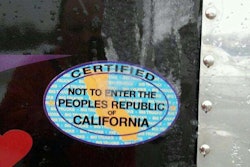
Taking aim at two separate legal issues brimming in California, the Western States Trucking Association this month filed a petition with the U.S. DOT asking it to interject in the ongoing dispute over California’s breaks requirement and filed a lawsuit challenging a recent California Supreme Court ruling regarding owner-operator status.
WSTA represents trucking companies in 11 states, including California. The two issues at hand, however, affect all carries who operate in California, no matter where they’re based, the group argues.
The July 9 petition filed with the U.S. DOT asks the agency to declare that, for drivers of oversize and overweight loads, federal hours of service regulations supersede California’s break requirement laws. The lawsuit against California’s Department of Industrial Relations and the state’s attorney general, meanwhile, seeks “to nullify the Supreme Court ruling that effectively eliminates the use of owner-operators, even one-truck motor carriers from the trucking marketplace,” says Joe Rajkovacz, head of government affairs for Western States.
The April 30 ruling by the California Supreme Court outlined criteria by which carriers should determine whether a driver is an employee or an independent contractor (owner-operator). The case at hand was Dynamex Operations West Inc. vs. Superior Court. Dynamex is a trucking company, who sued to challenge a ruling by the Supreme Court regarding driver classification.

The state’s Supreme Court court, in short, contended that California’s labor laws heavily favor classifying drivers as company employees (and therefore entitled to certain benefits and labor law protections), instead of contractors. The decision presses carriers to classify drivers as employees, even for owner-operators to whom they contract freight. Citing the so-called ABC test, the court said that if employers have a high degree of control over the type and manner of work performed, the worker should be classified as an employee.
Western States in its lawsuit says the decision conflicts with the 1994 Federal Aviation Administration Authorization Act, which says that states cannot enact laws that interfere with “prices, routes and service” of interstate motor carriers. WSTA argues that the California Supreme Court ruling interferes with all three. It also argues that the ruling would severely hurt many small trucking companies in the state, including single-truck owner-operators. The group says the ruling violates both the Commerce Clause and the Supremacy Clause within the U.S. Constitution.
“Virtually all entities in California utilizing independent contractors are now at risk from predatory lawsuits because of the California Supreme Court decision,” says Rajkovacz. “The trucking industry has unique legal protection under federal law from this type of decision. Our desired outcome is an immediate injunction against California utilizing an A-B-C test to determine employment classification in the trucking industry.
“We’re also working with other organizations within the state for a legislative solution,” he says. “However, until and if that can occur, the trucking industry needs to be protected from this Supreme Court decision that amounted to legislating from the bench.”
**
The petition from WSTA to the U.S. DOT is the latest move by the group in its effort to mitigate the effects of a 2014 court decision that Rajkovacz says has led to a wave of lawsuits against trucking companies by drivers, particularly smaller carries who don’t have the resources to take on expensive litigation.
The 2014 decision, made by the federal 9th Circuit Court of Appeals, involved group of drivers who sued Penske Logistics for not allowing them to take the state-mandated breaks. The court sided with the drivers, ruling that carriers must provide drivers paid rest breaks at certain intervals and allow them 30-minute meal breaks.
WSTA and other groups, such as the American Trucking Associations, have said the ruling also conflicts with the 1994 Federal Aviation Administration Authorization Act, which states federal hours of service regs dictate drivers’ work schedules, not state-level laws. Speaking to Overdrive earlier this year about the group’s legislative efforts to try to resolve the issue, Rajkovacz said, “All this does is tell the state of California, ‘You aren’t going to tell an interstate truck driver when to take a break.’”
The July 9 petition from WSTA would only apply to oversize/overweight haulers, but, if successful, “the same safety argument we are using can be expanded to all of trucking,” WSTA said in an email newsletter to members on Monday.
Western States has lobbied to have Congress to take up the issue. Multiple bills before the Senate and the House included language to effectively overrule the 9th Circuit decision by reasserting FAAAA’s authority over managing drivers’ work hours.
In addition to the myriad of lawsuits brought against carriers following the 9th Circuit ruling, the measures from Congress would prevent more states from enacting similar laws. Should all states take up their own break laws, it would create a patchwork of state laws for carriers to navigate, rather than simply adhering to unified federal regulations, says both ATA and WSTA.










